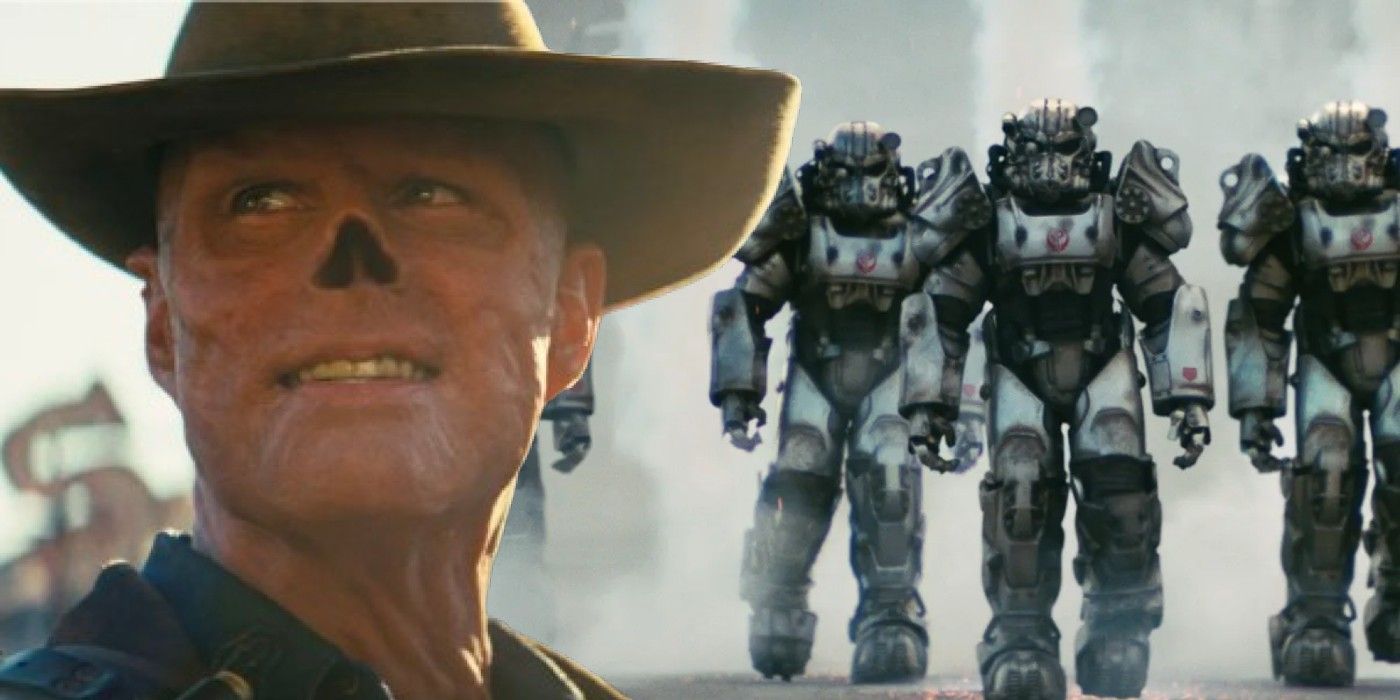
The Fallout Show: A Post-Apocalyptic Satire Inspired by MASH

A deep dive into the influences and themes of the upcoming Fallout TV show, set in a retrofuturistic post-apocalyptic society.
Influences and Inspiration
The Fallout TV show, set to premiere on April 12 on Prime Video, is a post-apocalyptic adaptation based on the video games of the same name. The show is heavily influenced by MASH, the groundbreaking television series that ran from 1972 to 1983, and the 1966 spaghetti Western, The Good, The Bad And The Ugly. The Fallout show depicts the aftermath of a nuclear war in a retrofuturistic society where survivors seek shelter in Vaults, similar to the concept of Vault-Tec's underground bunkers in the video games. The wasteland is populated with mutated monsters, and the show follows three separate characters, each searching for the same unspecified thing. These characters include Lucy, who leaves Vault 33, The Ghoul, a bounty hunter, and Maximus, a member of the Brotherhood of Steel.
Close-up of The Ghoul composited with members of the Brotherhood of Steel in Fallout show
In a recent interview with Empire, producer Jonathan Nolan explained how the Fallout TV show took inspiration from MASH. He emphasized that the show follows a tradition of using its own particular context to comment on contemporary issues, in this case, nuclear annihilation. Nolan compared the show to MASH, stating that just as MASH addressed the Vietnam War through the lens of the Korean War, the Fallout show explores the current state of the world through the lens of a post-apocalyptic society. This approach allows the show to satirically examine the concept of outsourcing the survival of the human race, mirroring the satirical edge of the Fallout video games.
Exploring the Characters and Themes
The Fallout TV show won't be a direct adaptation of its source material, the choose-your-own-adventure role-playing games. Instead, it draws significant influence from MASH and The Good, The Bad And The Ugly, particularly in its approach to storytelling and character dynamics. The show follows Lucy, The Ghoul, and Maximus, who represent different factions and perspectives in the post-apocalyptic world. Lucy's departure from Vault 33 sets the stage for her journey of discovery and survival, while The Ghoul embodies the archetype of a bounty hunter navigating the wasteland. Maximus, as a member of the Brotherhood of Steel, provides insight into the organized factions within the society.
The show's co-creator, Graham Wagner, highlighted the thematic similarities between The Fallout show and The Good, The Bad And The Ugly. He drew parallels between the three characters in the spaghetti Western searching for a box of gold and the quest for an unspecified goal in the post-apocalyptic world. This comparison prompts an exploration of the underlying motivations and desires of the characters, as well as the overarching theme of the pursuit of something valuable in a world ravaged by chaos and destruction.
Satirical Commentary and Social Relevance
The Fallout TV show's satirical edge is a key aspect that sets it apart from traditional post-apocalyptic narratives. Similar to MASH's use of comedy and satire to comment on current affairs during the Korean War, the Fallout show utilizes its retrofuturistic setting and mutated monsters to deliver pointed social commentary. The show's aesthetic, reminiscent of the 1950s, serves as a platform for satirical exploration of the human condition and societal issues within the context of a post-apocalyptic world.
Producer Jonathan Nolan's comments about the show's inspiration from MASH and its approach to addressing contemporary issues, particularly nuclear annihilation, underscore the show's intent to provide a satirical commentary on the state of the world. By using the lens of a post-apocalyptic society, the show aims to engage viewers in a thought-provoking exploration of themes such as survival, morality, and the consequences of human actions.








